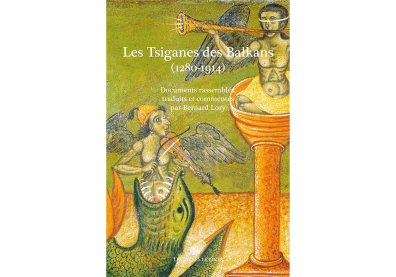Eleventh session of the CREE debates: "Gypsies in the Balkans (1280-1914)".

The Centre de recherche Europes-Eurasie (CREE) is pleased to invite you to the eleventh session of the CREE Debates around Bernard Les Tsiganes des Balkans (1280-1914), Éditions Les Belles Lettres, 2024.
Discussion with
- Méropi Anastassiadou-Dumont (CERMOM, Inalco),
- Petre Petcuţ, lecturer at Inalco
- Bernard Lory, professor emeritus at Inalco (CREE, Inalco)
Hosted by
- Anne Madelain (CREE, INALCO)
The event will be followed by a friendly drink
Presentation of the book
Gypsies (Rroms) and their history are widely misunderstood and the subject of many stereotypes that contribute to giving them a timeless vision, as if they hadn't adapted to the changes of their time and hadn't interacted with the societies they came into contact with. This vision of Gypsies living in an unchanging, anhistorical bubble is erroneous: over the centuries, they have modified their economic activities, their language practices, their lifestyle.
In the present work, Bernard Lory takes the historical investigation back to its roots, collecting as varied a range of primary sources as possible, written between the late 13th century and the early 20th century. A specialist in the history of the Balkans, he has limited his study to South-East Europe (Greece, Albania, Bulgaria, European Turkey, Macedonia, Serbia, Kosovo, Montenegro, Croatia and Bosnia-Herzegovina), a vast territory with a large gypsy population. This geographical approach is largely conditioned by the Ottoman factor, since it concerns territories that were under its direct and prolonged administration.
A total of 157 documents translated from Byzantine Greek, Slavonic, Ottoman Turkish, Latin, German, English, Serbo-Croatian, Bulgarian or Macedonian. Each text is introduced, provided with the necessary explanatory notes, commented on and compared with other sources of similar content. Readers will notice that there is no mention of caravans, and very little about music or fortune-telling. On the other hand, the blacksmith's trade is central, questions of taxation are omnipresent, and the complex relations between Gypsies and Gadjos are explored with great subtlety.
About the author
Bernard Lory is Professor Emeritus at Inalco in Paris, where he taught Balkan civilization from 1989 to 2020. A connoisseur of many of the Slavic languages of the Balkans, he promotes a history of Balkan societies that does not focus solely on politics, but is rather rooted in geography and ethnology. He has published several books on these subjects, such as La ville balkanissime : Bitola, 1800-1918 (2011).
"Les Débats du CREE" are a regular meeting devoted to editorial and research news on medieval Europe and the post-Soviet space in various disciplines (language sciences, humanities and social sciences).
Coordination
- Anne Madelain (CREE, Inalco)